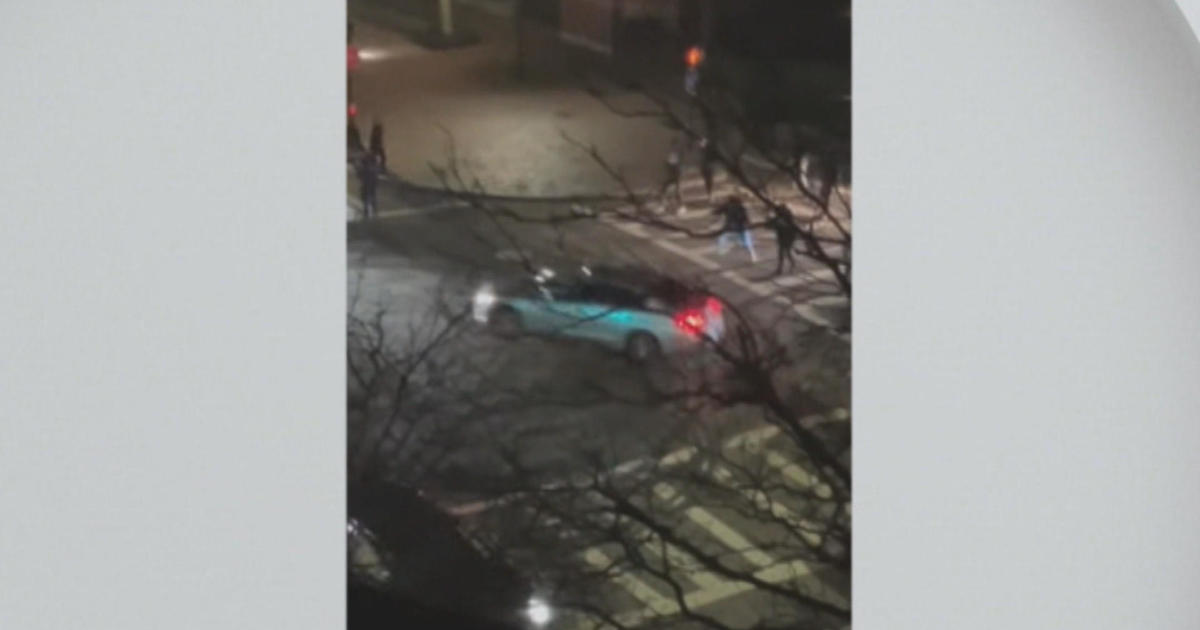John Henry's Concerns Over Yawkey Racism Go Back To 2002
By Matt Dolloff, CBS Boston
BOSTON (CBS) -- It's fair to wonder why Red Sox principal owner John Henry chose a Thursday afternoon email to the Boston Herald to further publicize his intentions to rename Yawkey Way. Racial tensions in America have rarely been higher. Controversies are percolating over confederate monuments and buildings named after people with histories of racism, including here in Boston.
Henry's timing is at best peculiar. In his public call to remove Thomas A. Yawkey's name from the street outside Fenway Park, it's virtually impossible to dispute that he's taking advantage of the current tense political climate, that he's striking while the proverbial iron is hot.
But that doesn't mean that Henry just decided to consider the name change this week. In fact, he's thought about it since soon after he bought the Red Sox 15 years ago.
Henry's concerns over the Red Sox' history of racism, which largely stem from Yawkey's tenure as owner from 1933-1976, were expressed thoroughly as part of the introduction to Howard Bryant's eye-opening 2002 book, Shut Out: A Story Of Race And Baseball In Boston. Though mostly unaware of the more objectionable aspects of Yawkey's ownership at the time, Henry spoke at length with Bryant in an effort to better understand them:
[Henry] wanted to know if the relationship of the Red Sox with black players and the African-America community was as damaged and intractable as he'd heard it was. ... Bluntly, John Henry cut to the issue. He asked what the perception of the black community was toward the franchise he'd paid $700 million to steward. We shared stories.
Through all the stories, Henry knew in that moment that he had an opportunity to change the perception of the Red Sox and Boston in ways that prior owners did not:
Though he owns no responsibility, John Henry seemed to know that as much as he controls the Red Sox future, he can also be susceptible to the tough of its past, a past that - in the framework of race - was never truly confronted by his predecessors.
In gaining a better, deeper understanding of the long-standing tension between the Red Sox and African-American ballplayers, Henry knew back then that the Red Sox could do more to change that than they had:
"It doesn't have to be this way," Henry said of the lingering animosities between the community and team, the trepidation between players - potential championship-winning players - and the Red Sox, his Red Sox. "You have to just decide you want to make the effort. If you make the effort, I believe people will respond."
It may have taken 15 years, but Henry has made his biggest effort yet for real change. And people are certainly responding.
Many fans commented that Yawkey Way, which was renamed from Jersey St. in 1977, is simply ingrained into Fenway Park's history. In hours-long discussions on 98.5 The Sports Hub, many have questioned why Henry chose this week in particular to declare the team's intentions to rename the street.
While his timing is certainly conspicuous, Henry said in his email to the Herald that he tried "a number of times" with Boston's prior Mayoral administration of Thomas M. Menino to change the name, but faced resistance amid concerns that they would "open what they saw as a can of worms."
The "slippery slope" argument, ostensibly used repeatedly by the Menino administration, has been common for those who have resisted the idea of renaming Yawkey Way in recent days. But no one can dispute the dark past of Yawkey, who infamously passed on Jackie Robinson and made the Red Sox the last major league team to integrate in 1959, that is prompting the discussion in the first place. In the case of Yawkey, the history is more cut-and-dry than most other examples.
Henry may be using the recent events in Charlottesville, as well as the groundswell of calls to remove or rename other historical landmarks associated with racism, as a springboard to prompt his own desire to erase Yawkey Way from the Fenway Park map. But the truth is that it's far from his first attempt as Red Sox owner to make that a reality, and it's been on his mind since he started building his own history.
Matt Dolloff is a writer/producer for CBSBostonSports.com. Any opinions expressed do not necessarily reflect those of 98.5 The Sports Hub, CBS, or any subsidiaries. Have a news tip, question, or comment for Matt? Follow him on Twitter @Dolloff985 and email him at mdolloff@985thesportshub.com.



